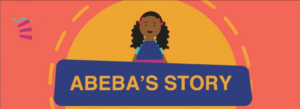

Child helplines are here to listen to children, young people and their caregivers every day. You can share anything with a child helpline counsellor, including talking about any abuse, neglect, violence or exploitation that you may be experiencing. You can also talk to the counsellor about your feelings, your fears, and the hopes, worries and any concerns that you might have. Child helplines have many trained counsellors, and they can help you wherever you come from and wherever you are.
So, if you are a child, young person, caregiver or parent affected by the war in Ukraine, you can always contact a child helpline to get the help, advice, counselling and support that you need. A child helpline is available for you in Ukraine, and child helplines are also available for you in neighbouring countries where you may now be living.

It can always be helpful for you to contact a child helpline whenever you’re finding it difficult to cope or you simply need somebody to talk to. And it’s very important that you contact a child helpline as soon as you can whenever you are experiencing an urgent or extreme situation. This could include any of the following:
If you are worried that it will be difficult to talk to somebody about how you are feeling, remember that you don’t have to talk about everything all at once. Start by just sharing a little bit of information, or letting someone know that you would like some help and support with something.
Click on the map or the buttons below to find information about child helplines in the country where you are. If you can’t find your country on the map, you can look here for a child helpline in your country.
